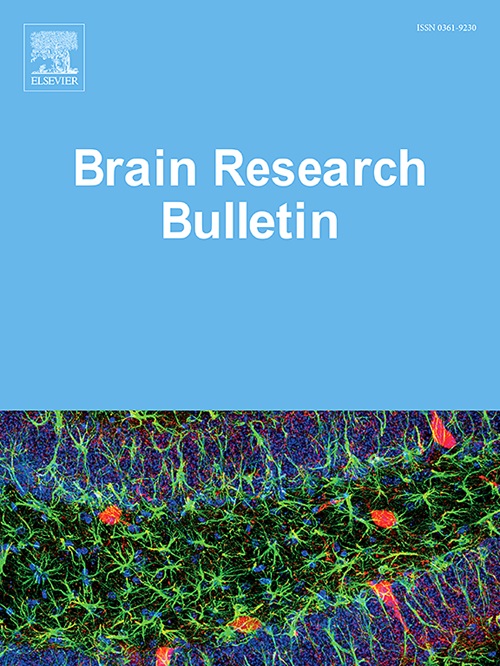Association of neurodegeneration, cognitive impairment, and short stature in Down syndrome; Could proinflammatory cytokines be the common factor?
IF 3.5
3区 医学
Q2 NEUROSCIENCES
引用次数: 0
Abstract
Down syndrome (DS), caused by an extra copy of chromosome 21, is the most prevalent chromosomal disorder. It leads to various complications including, cardiac and endocrine dysfunctions, impairment of the immune system, growth retardation, and certain neurological conditions. Stunted growth in this population might be linked to an increased risk of a variety of co-occurring conditions, particularly neurological disorders. Studies indicate that the levels of neurodegeneration and neuroinflammation markers are higher in shorter children with DS. The disruption of insulin-like growth factor 1 (IGF1) signalling pathway due to the overexpression of proinflammatory cytokine genes could help establish a connection between short stature and neurodegeneration in DS. These cytokines disrupt the production of IGF1 in the liver, thereby inhibiting IGF1 from promoting bone and brain growth. Additionally, elevated cytokines levels impair the production of sex hormones by affecting the gonadal axis, further exacerbating the aforementioned conditions. The group of GnRH neurons responsible for cognitive functions is also impaired in DS, and treatment with GnRH agonists has demonstrated improvements in cognition. Although GnRH agonists can delay the fusion of growth plates by inhibiting pulsatile GnRH secretion, they may also lead to cognitive impairments. Hypothyroidism, the most prevalent endocrine complication of DS, can also contribute to both cognitive impairment and short stature. In conclusion, the increase of proinflammatory cytokines, through various mechanisms, can play a significant role in the development of both cognitive impairments and short stature in DS.
求助全文
约1分钟内获得全文
求助全文
来源期刊

Brain Research Bulletin
医学-神经科学
CiteScore
6.90
自引率
2.60%
发文量
253
审稿时长
67 days
期刊介绍:
The Brain Research Bulletin (BRB) aims to publish novel work that advances our knowledge of molecular and cellular mechanisms that underlie neural network properties associated with behavior, cognition and other brain functions during neurodevelopment and in the adult. Although clinical research is out of the Journal''s scope, the BRB also aims to publish translation research that provides insight into biological mechanisms and processes associated with neurodegeneration mechanisms, neurological diseases and neuropsychiatric disorders. The Journal is especially interested in research using novel methodologies, such as optogenetics, multielectrode array recordings and life imaging in wild-type and genetically-modified animal models, with the goal to advance our understanding of how neurons, glia and networks function in vivo.
 求助内容:
求助内容: 应助结果提醒方式:
应助结果提醒方式:


